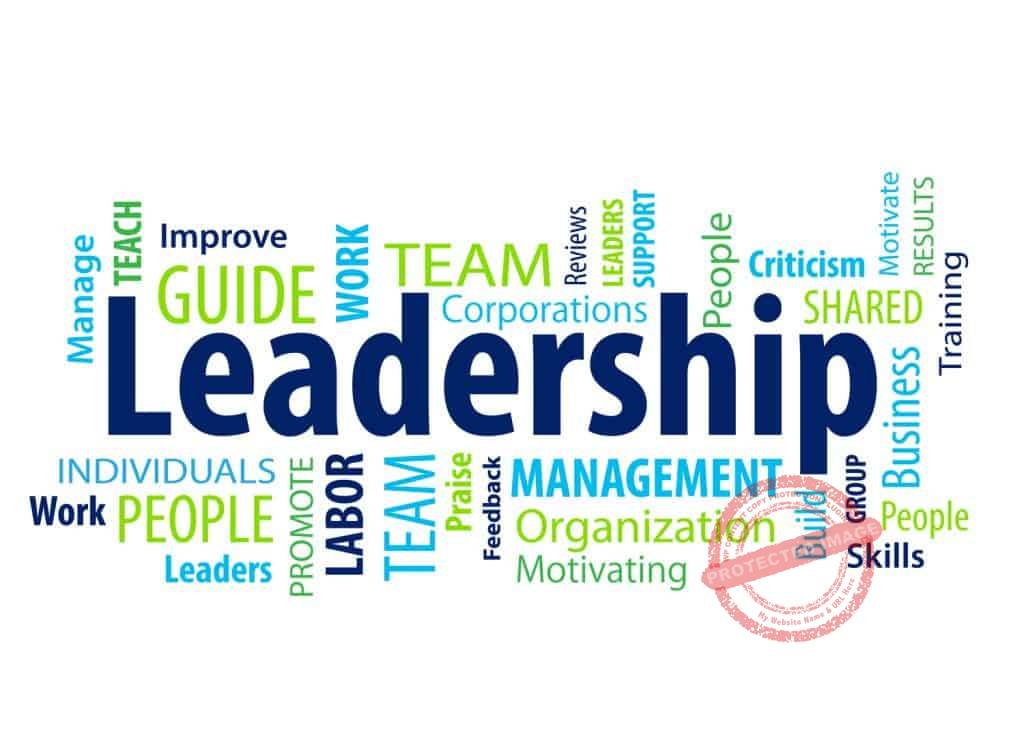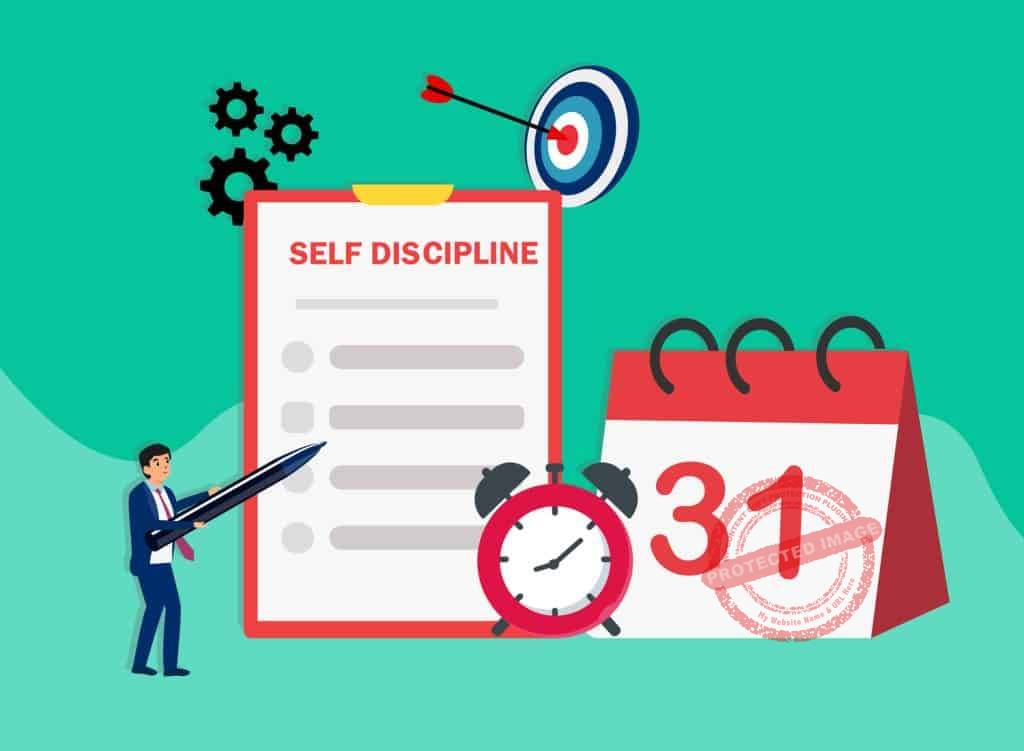Do you want to learn how to be a great leader?
Or perhaps you are looking to improve your leadership skills?
If your answer to the above questions is yes, then prepare your mind to learn from the tips we are about to share on being a great leader.
When we hear the word “leader”, we often immediately think of those in positions of authority, such as presidents, politicians, and CEOs.
However, leadership is not defined by a particular job or a person’s level of seniority.
Just because someone has been working for a long time does not imply that they possess the necessary skills to lead a team.
Similarly, being promoted to management does not immediately make you a leader.
There are specific skills that must be developed that are necessary for anyone who wants to learn how to be a great leader.
These skills can enable you to serve as a role model for a team in any environment.
So, what qualities distinguish a great leader?
As we proceed, you will learn these essential qualities that make a great leader and tips on becoming one.
What is Leadership?

Leadership can be defined as the ability to inspire a group of individuals to work together to achieve a common objective.
In an organizational setting, this may imply directing employees and colleagues with a plan to fulfill the organization’s needs.
Leadership is an essential aspect of the management process.
It often comes with the capacity to motivate people socially; to show them why what they are doing is relevant or essential.
This is what leadership entails.
To achieve organizational goals, cooperation from employees, and increased productivity, a business owner has to be exemplary, efficient, and a great leader.
Who is A Great Leader?

A great leader is someone who motivates others to work toward a better vision.
They help to develop their employees’ abilities and talents and build teams committed to attaining similar goals.
In addition to providing guidance and encouragement, great leaders demonstrate courage, passion, devotion, confidence, and ambition.
They demonstrate excellent decision-making when it comes to utilizing the resources at their disposal.
Qualities of a Great Leader

What qualities differentiate a great leader?
This might be a difficult question to answer.
You probably would have specific individuals whom you consider to be great leaders, some more influential than others.
While successful leaders have a wide range of styles and attitudes, there are several qualities that all great leaders have.
Great leaders exhibit the attributes described below in their professional and personal life, inspiring others to follow and imitate.
Self-Confidence
One of the essential qualities of a great leader is self-confidence.
According to studies, self-assured leaders are optimistic and determined to take risks necessary to attain their personal and career goals.
Great leaders often display a high level of self-confidence; as a result, they are aware of their abilities and leadership skills.
They can make tough calls while remaining optimistic and confident.
This can help them to make quick decisions and address organizational issues.
Confident leaders can comfort and motivate others, maintain open communications, and foster teamwork.
Self-confidence is essential for leaders because it allows them to take chances, achieve goals, and stand out.
Effective Communicator
Great leaders exhibit excellent communication skills.
Effective communication may help to minimize conflicts, improve teamwork, and boost productivity.
The best leaders are effective communicators who can convey messages and inspire others to do their tasks.
They utilize appropriate language for the situation and encourage others to share their thoughts and opinions.
Another aspect of effective communication is active listening, which assists people in grasping the ideas and opinions of others around them.
Great leaders can also listen to and learn from the actions of others, providing them with a thorough grasp of human complexities.
They can build relationships with people from varied fields, regions, and backgrounds.

Great Decision-Making Skills
Decision-making is a critical talent in the business, especially for leaders.
An unsure leader doesn’t make a great leader.
When faced with a difficult situation, great leaders take decisive actions and understand how to support their business, workers, and clients.
They also consider the potential repercussions of their decisions and other alternatives to solve any challenges facing them.
Great leaders understand that their decisions have the power to build or ruin a company.
They thoroughly examine a particular situation before reaching a decision.
Before making any announcements, they gather all of the relevant information.
They also do not trust rumors and instead conduct their investigation into a subject or problem before concluding.
Ability to Delegate
The ability to delegate tasks effectively is a significant leadership attribute.
Great leaders understand that delegating tasks to others does more than relieving their stress.
Delegating to others is essential for increasing productivity and team effectiveness.
As a result, knowing when and how to delegate allows great leaders to devote more time to their most critical tasks.
Also, it is vital to remember that the capacity to delegate is not limited to assigning duties to others.
It also involves knowing and comprehending who possesses the required abilities and competence to execute the task.
Integrity and Honesty
Integrity and honesty are two crucial characteristics of great leaders.
One of the keys to maintaining a healthy and productive work environment is having leaders that act with integrity.
Leaders that have integrity are often honest, dependable, and trustworthy.
Great leaders with integrity act according to their principles and accept their flaws rather than blaming others or making excuses.
Integrity also means adhering to organizational policies, utilizing resources reasonably, and treating coworkers with respect.
It is critical to recognize that a leader’s actions reflect not only on their reputation but also on the company’s reputation.
Tips on How to Be a Great Leader

There are only a few people who are born with natural leadership abilities.
Most individuals adopt leadership skills into their lives due to their education, mentorship, and experience.
Anyone has the potential to become a leader.
However, you may be wondering how to become a great leader rather than just an ordinary leader.
What attributes should you possess to become a great leader?
Studies have shown that this desire to be a better leader is the cornerstone for becoming one.
But that’s only the start.
So, do you want to learn how to be a great leader?
Below are some tips to assist you on your way to becoming one:
Lead by Example – How to Be A Great Leader
Do you wish for individuals to change their behavior?
According to studies, great leaders can instill a belief in their followers and then persuade them to follow it.
As a result, your actions as a leader may guide and motivate others to be better.
One of the most effective methods to lead is to set a good example.
Set an excellent example for others through what you say and do, as well as how you treat them.
Rather than urging your followers to take on specific duties, you can take on the activity yourself and demonstrate how to execute it.
This may also apply to whatever else you wish others to do after you.
Perform the task first, and demonstrate rather than talk.
As a leader, you may have a variety of responsibilities, but it is essential that you engage with your team by leading by example.
This is a great way to build trust as a great leader while simultaneously expanding your knowledge and talents.
As a result, others may be more likely to listen to you and desire to be like you.

Be a Mentor
Mentoring is another essential skill that great leaders possess.
Because your workers would rely on you for direction, mentoring, and support, you should emphasize appropriate mentorship when defining your leadership goals.
Create a growth plan to assist each team member in improving as a person and in their career.
Great leaders meet with each member of their team to discuss career objectives and assist them in reaching these goals.
After your meeting, supply them with frequent comments and guidance to assist them on their journey.
Demonstrate your concern for their personal growth by listening to them and giving them new chances to grow.

Practice Self-Discipline
Discipline is an essential attribute for great leaders.
According to studies, leaders who possess good self-control and discipline are more likely to succeed in their roles.
Being disciplined in your career (and personal) life is vital for becoming a great leader and inspiring others to be the same.
People will rate your ability to lead based on how disciplined you are at work.
Discipline yourself at work by constantly meeting deadlines, making appointments, and finishing meetings on time.
If you are inherently unorganized, you may have a difficult task ahead of you, but you can start small.
Try practicing good habits such as getting up early, exercising regularly, and gradually building up from there.
Be Open to New Possibilities
To withstand whatever difficulties and challenges the future may bring, we need to learn to adapt.
Great leaders often possess the self-awareness to recognize and accept that change is unavoidable.
As a result, rather than keeping the status quo to maintain consistency, they encourage change and innovation.
Being open-minded as a business leader can help you become more receptive to fresh ideas and varying points of view.
An open mind might be vital in developing a strategic strategy, creating a culture, and increasing your business’s financial success.
Ensure to embrace these varying opinions rather than discourage them.
Also, take note of past events, and be open to new approaches to inspire, encourage, and reward your team members.
Embrace Failure
When we have invested time and effort into a task only to fall short, it may be tough to accept defeat.
However, there are advantages such as gaining knowledge and experiences that can equip us to explore future projects with greater success.
As a leader, you must recognize and accept that not all your decisions will meet a successful outcome.
It is vital to accept responsibility for the issue and be open about what happened in these situations.
The key to becoming a great leader is understanding that failures may lead to more tremendous success if accepted rather than avoided.
When failure occurs, discuss with your team what went wrong and how to prevent future reoccurrences.
This interaction may foster healthy relationships within your team and increase the efficiency of your organization.
Be Decisive – How to Be A Great Leader
Making timely and well-informed decisions is an essential aspect of being a great leader.
Decisive leaders often seek out the knowledge they require to make informed decisions.
The capacity to make relevant and accurate decisions given the appropriate amount of information is known as decisiveness.
It is essential in the workplace for successfully executing strategies and attaining goals.
Each time you face challenges, be confident in your abilities.
This will enable you to make the best decision for your business.
Great leaders do not hesitate when it comes time to act or make these critical decisions.
They can encourage employees to work together toward a similar goal and to stick to it even in challenging circumstances.

Motivate Your Followers
Great leaders often possess the ability to impact others positively.
When employees or colleagues lose their passion and zeal, great leaders can re-energize and inspire them to pursue their goals.
How do great leaders inspire others?
Great leaders communicate their purpose and objectives clearly and demonstrate how these goals may be reached via their words, behaviors, and beliefs.
Even in the face of chaos, they keep their team motivated on its goals and mission.
However, motivation does not only include delivering inspiring speeches or presenting an extraordinary business vision.
It is also about following up and giving individuals the support they need to reach their goals.
Great leaders can act as the spark that ignites the desire to succeed and do well in other individuals.
Finally, they encourage others to become leaders, passing the torch on to benefit many more people.
Develop a Positive Attitude
As much as you would like your daily activities to run smoothly, there will likely be some occasional stumbling blocks.
Whether it is a slight misunderstanding or a significant mistake, how you manage a difficult circumstance can reveal a lot about your leadership abilities.
Great leaders often possess a positive, optimistic mindset that can motivate their followers.
If you look depressed or reluctant, members of your group are more likely to get uninspired.
Ensure to maintain a positive mentality even when things look disappointing, and your followers feel disheartened.
This is not to say that you should ignore or deny that the problem exists.
It simply implies remaining positive amid frustrations.
Set Achievable Goals for Development
Setting goals is essential for improving your leadership skills and strengths.
Ensure to identify areas you need to improve and set goals to achieve your desired growth.
Well-defined goals can provide you with concentration and direction.
They will allow you to track your development and observe how you are improving.
Your objectives should be beneficial, practical, and attainable.
When setting development your goals, honestly analyze your strengths and limitations as a leader.
If you have difficulty identifying your flaws, get input from a trusted adviser, your team, or a leadership evaluation tool.
Your goals can be for the short or long term, and they can be accomplished in several ways.
If you have long-term goals, it might be beneficial to divide them into smaller goals that can be tracked regularly.

Engage in Open Communication
Establishing an open communication channel with your teammates or colleagues is one of the most crucial aspects of outstanding leadership.
Great leaders foster a culture of open communication and actively listen to what their team members say.
It is crucial to be clear and truthful when you are in charge of a group of people.
If you make honesty and moral standards a significant priority, your team is likely to follow.
Whether you receive favorable or unfavorable feedback, approach every conversation to listen to your team’s thoughts.
Showing your readiness to listen can create a sense of trust and inspire others to share their opinion and thoughts.
This can inevitably lead to increased productivity and progress toward attaining goals for both individuals and businesses.
Seek Support from Others – How to Be a Great Leader
When taking on a new task or executing a project overwhelms you, this may be the best time to seek support from others.
Weak leaders are often hesitant to seek assistance for fear of being perceived as incompetent by others.
On the other hand, great leaders build courage and seek out support from their team members to accomplish their tasks.
Do not hesitate to seek help from people you admire as a leader and see as prospective mentors.
These individuals may be able to provide guidance or act as your mentor.
They might be able to provide you with constructive comments to assist you in enhancing your leadership abilities.
Also, ensure to read books written by these individuals and listen to lectures that explain their leadership and problems.
Conclusion on How to Be a Great Leader

Finally, there is no one-size-fits-all model for leaders, and the finest ones have often developed their skills through time.
It is important to note that becoming a leader does not happen immediately.
However, mastering the tips we have shared can help you simplify this challenging process and become the great leader you desire.
Actively learning to improve your leadership and management abilities can positively impact your career and personal life.
So, take the necessary action today.
Cheers to becoming a great leader!









